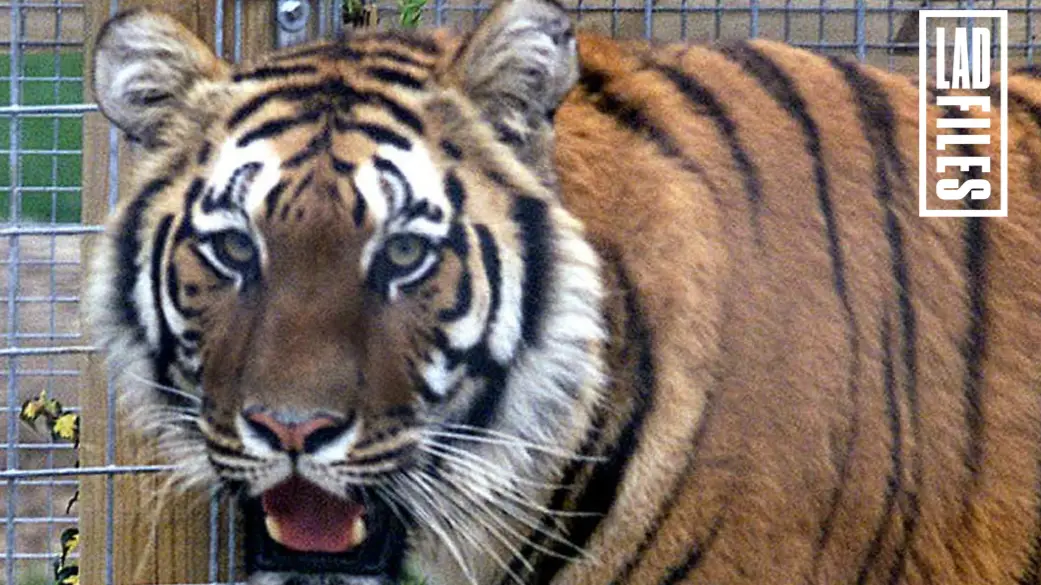
Wild animals including tigers, lions, leopards and crocodiles are being legally kept at private properties across the UK.
A freedom of information request by LADbible, sent to councils in England, Scotland and Wales, also found owners of cheetahs, primates and deadly snakes have been granted licences under the Dangerous Wild Animals Act.
Over 4,800 dangerous wild animals are licensed to be kept in Great Britain but experts think that there could actually be '10 times as many' when considering those housed illegally.
According to figures from the Born Free Foundation, there are at least 50 big cats living on British soil under laws put in place for keeping pets.
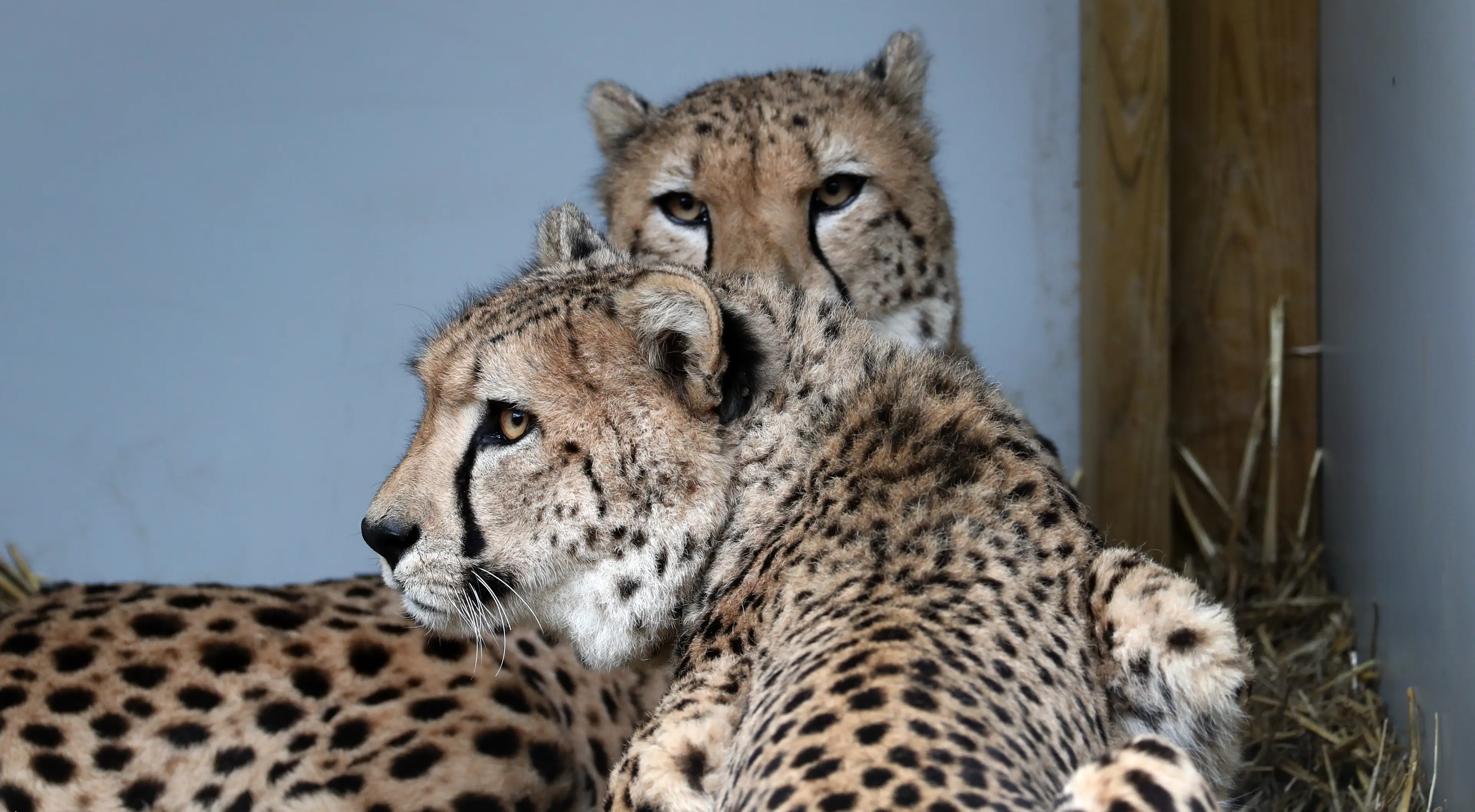
Council records show that on private property in England, primates and crocodiles are residing in Scarborough while North Hertfordshire is home to two leopards, one jaguar, five pumas and four snow leopards. There are also lions and tigers in West Oxfordshire and four pumas in Cornwall.
Scotland has seven members of the crocodile family living in North Lanarkshire along with another seven in Clackmannanshire. It also has hundreds of boar across properties in East Lothian, Perth and Kinross and East Ayrshire.
In Wales, there's a puma that calls Swansea its home and a zebra living in Neath Port Talbot. There's also a spider monkey as well as venomous snakes residing in the country, along with an elephant who lives at a sanctuary in Carmarthen.
LADbible has also learned of pet monkeys living in kitchens and crocodilans being kept illegally in the bath tubs of flats in Edinburgh and London - the latter being fed a diet of sausages.
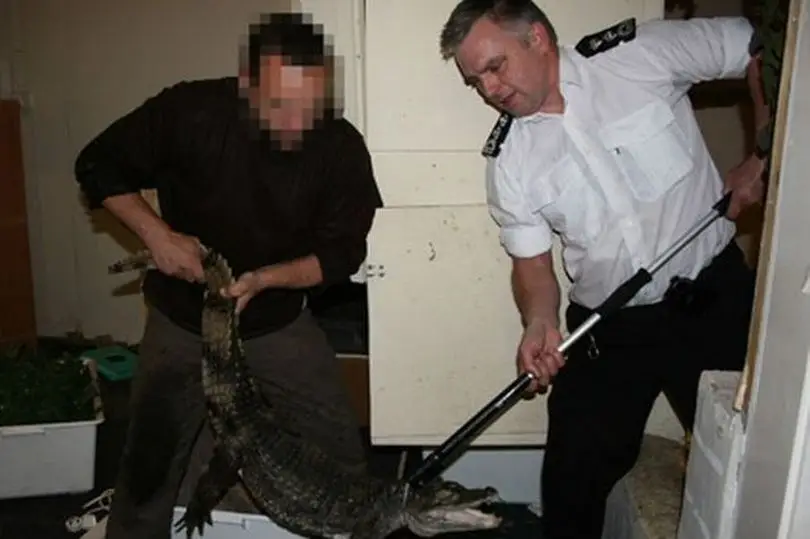
Jamie Mintram, 45, runs a rescue facility in Lincolnshire and has been tasked with providing wild animals with a home when Border Force intercepts plots to smuggle the creatures into the country.
Jamie told LADbible: "It's like anything that people are told they're not allowed to have, whether it's drugs or weapons - there'll be a black market supplying people who want to go the unofficial route and they can buy these animals illegally.
"When these people are caught, which occasionally they are, by the council or the police - the animals then need a home.
"It's not the crocodile's fault that he's a crocodile and so we've got a few dangerous wild animals here that were being kept illegally."
Jamie's family-run Ark Wildlife Park is funded by being open to the public and aims to give the 250-plus animals a better life than they had at their previous homes.
He doesn't buy or trade the animals and his enclosures have been designed so that no physical contact ever needs to be made with dangerous creatures.
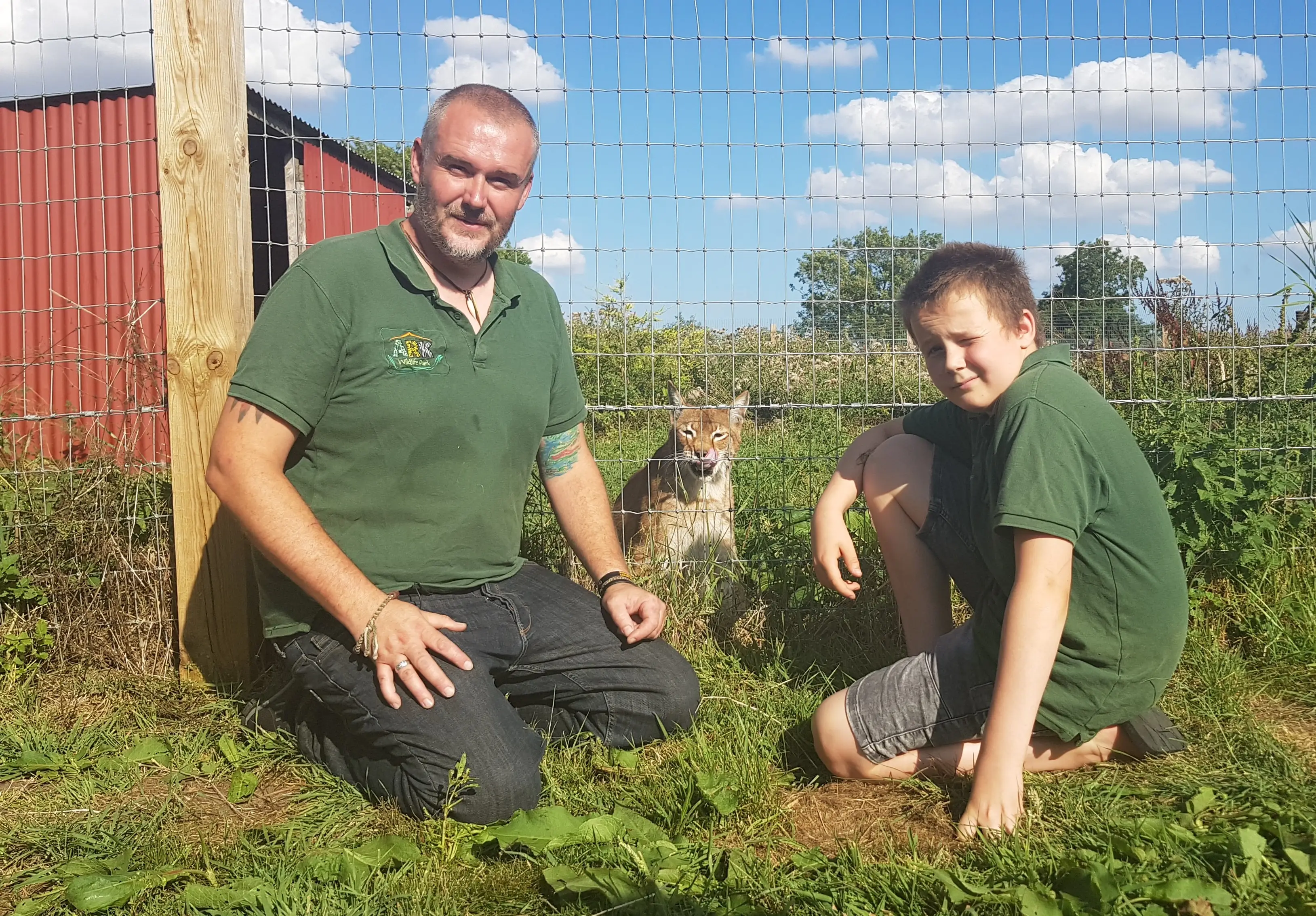
Jamie said: "Rudolph, our caiman, was being kept in a bath tub and the owners were trying to feed him sausages which is a completely unsuitable diet for an animal like that.
"He was very emaciated when he was removed by the police. He's been with us for four years now and he's knocking on for about five foot in length - he's a healthy size but he certainly wouldn't have survived in the environment he was being kept in.
"There are people keeping these animals for genuinely good reasons but I'm afraid with a lot of these animals there is a machismo factor about them - the bragging rights.
"People started keeping reptiles and, as it's gone along, your corn snake and your bearded dragon just aren't impressive enough and they go to these more extreme pets."
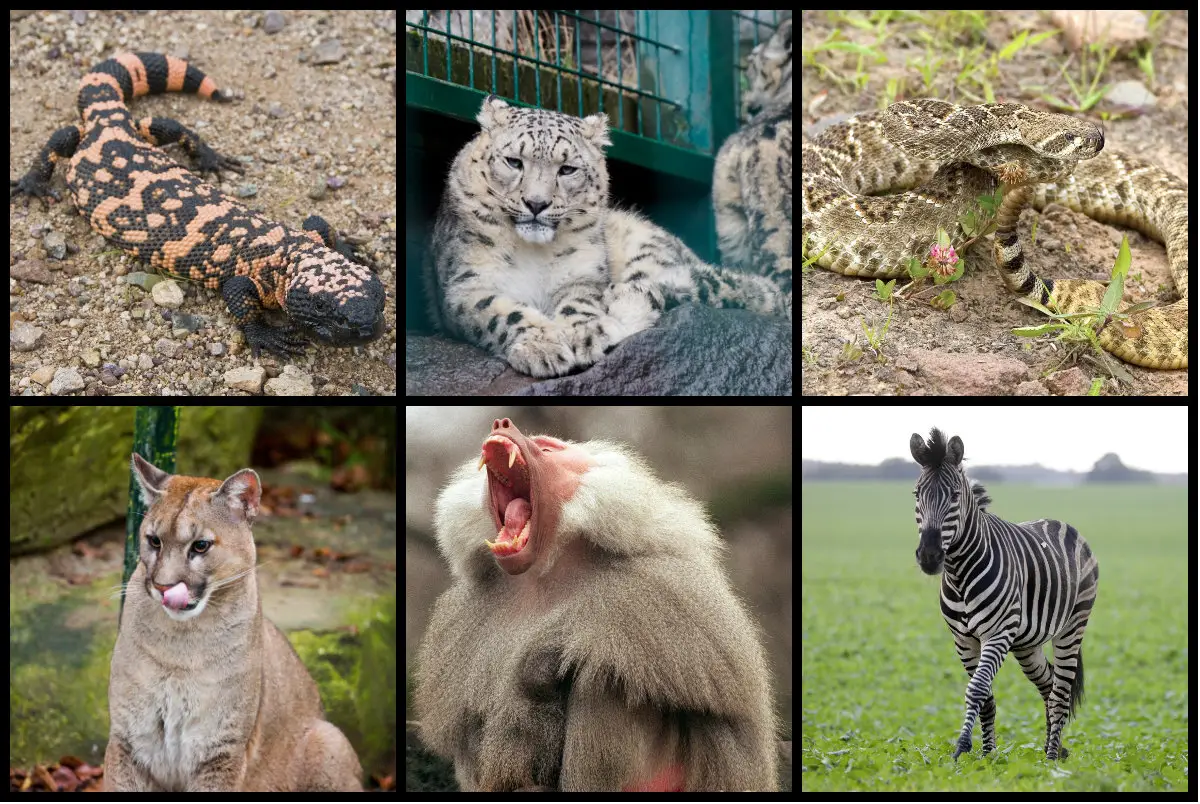
- Gila Monster (top left) - The Gila monster is one of only a few of venomous lizards in the world and one lives in Thanet, Kent. Naturally found in the deserts of the US and Mexico, Gilas latch onto prey and chew to allow toxins to move their teeth and into the open wound.
- Snow Leopard (top centre) - There are four snow leopards living in North Hertfordshire rather than the mountain ranges of Central and South Asia.
- Western Diamondback Rattlesnake (top right) - One lives in Halifax, Yorkshire, while another lives in Amber Valley, Derbyshire. The snake is thought to be responsible for more deaths in the United States than any other venomous snake.
- Puma (bottom left) - There are pumas living in Rutland, North Hertfordshire, Cornwall and Swansea.
- Hamadryas Baboon (bottom centre) - LADbible's FOI found that two baboons are living in the Royal Borough of Windsor and Maidenhead
- Zebra (bottom right) - The African mammals are currently living in South Ayrshire, Neath Port Talbot and the Cotswolds.
The Dangerous Wild Animals Act (DWA) covers creatures considered to be wild or dangerous and licences are handed out by councils if safety and welfare measures are deemed adequate at the owner's home.
The same licences are also issued to properties where animals may live after being rescued but do not apply to zoos which have their own permit system.
However, some owners have expressed concerns at the 'inconsistency' in safety guidelines between different councils and called for centralised regulations.
In Ireland, there is no such law, and you can legally keep any species if you manage to source it.
The head of the country's animal welfare organisation, the ISPCA, told LADbible that along with the danger they pose if they escape, he also has concerns about the diseases some of these animals may carry in light of the coronavirus pandemic.

ISPCA CEO Dr Andrew Kelly told LADbible: "The ISPCA believes that legislation in Ireland is urgently required to restrict the species that can be kept, bred or sold in Ireland, based on their welfare needs, risk to the public and risk to the environment if they escape.
"Risks to the public include zoonosis, e.g. salmonella, campylobacter and even possibly the next pandemic - Covid-19 is thought to have originated in the wildlife markets in China from a bat or a pangolin."
While the RSPCA said it finds the number of registered dangerous wild animals living here 'deeply concerning', the Born Free Foundation said the figures are likely to be much higher.
Dr. Chris Draper Head of Animal Welfare and Captivity at Born Free told LADbible: "In terms of numbers of exotic pets kept without the relevant licence under the Dangerous Wild Animals Act, taking into account the range of species, I would say that a very conservative estimate would be half as many as are licensed. But in reality it is likely to be many, many more - maybe even ten times as many.
"The illegally kept animals are most likely to be venomous snakes and invertebrates, rather than big cats or primates, not least as they are easy to keep and trade without detection.
"Your neighbour could have a bedroom or garage full of dangerous snakes in tanks, and most likely you would be none the wiser.
"If someone is considering getting an exotic animal as a pet, especially one that requires a licence under the Dangerous Wild Animals Act, my advice to them is simple - don't do it.
"These are wild animals, they are not used to living alongside humans nor life in a domestic environment, and they will suffer as a result, with the added threat that they may harm you or your family."
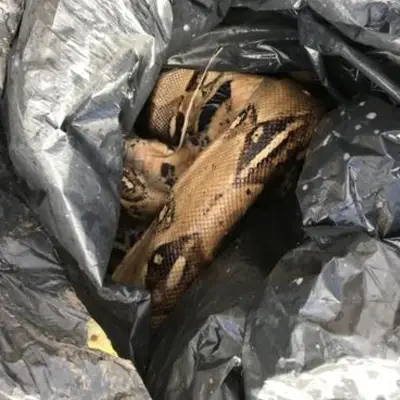
In Scotland alone last year, at least 27 stray exotic animals were found by the public.
The Scottish SPCA said the rise in internet impulse buying has led to more and more unusual animals going without the specialist care they require.
The organisation's chief officer recalled a sting operation after he was tipped off about another crocodilian living in a bath in an area in Edinburgh.
Scottish SPCA Chief Superintendent Mike Flynn said: "Our special investigations unit were notified of a man in Leith offering a spectacled caiman crocodile for sale through an online selling site.
"Our team contacted the man and arranged to meet him in a car park. The man had brought the 5ft crocodile in the boot of his car.
"When he realised who we were, he became aggressive and was restrained by the police.
"The crocodile, who we named Jimmy, was transported to our wildlife centre where he stayed for a short time.
"We contacted anyone in the UK who might be able to take him but nobody could. We eventually found somewhere in Torremolinos in Spain that was happy to take him."
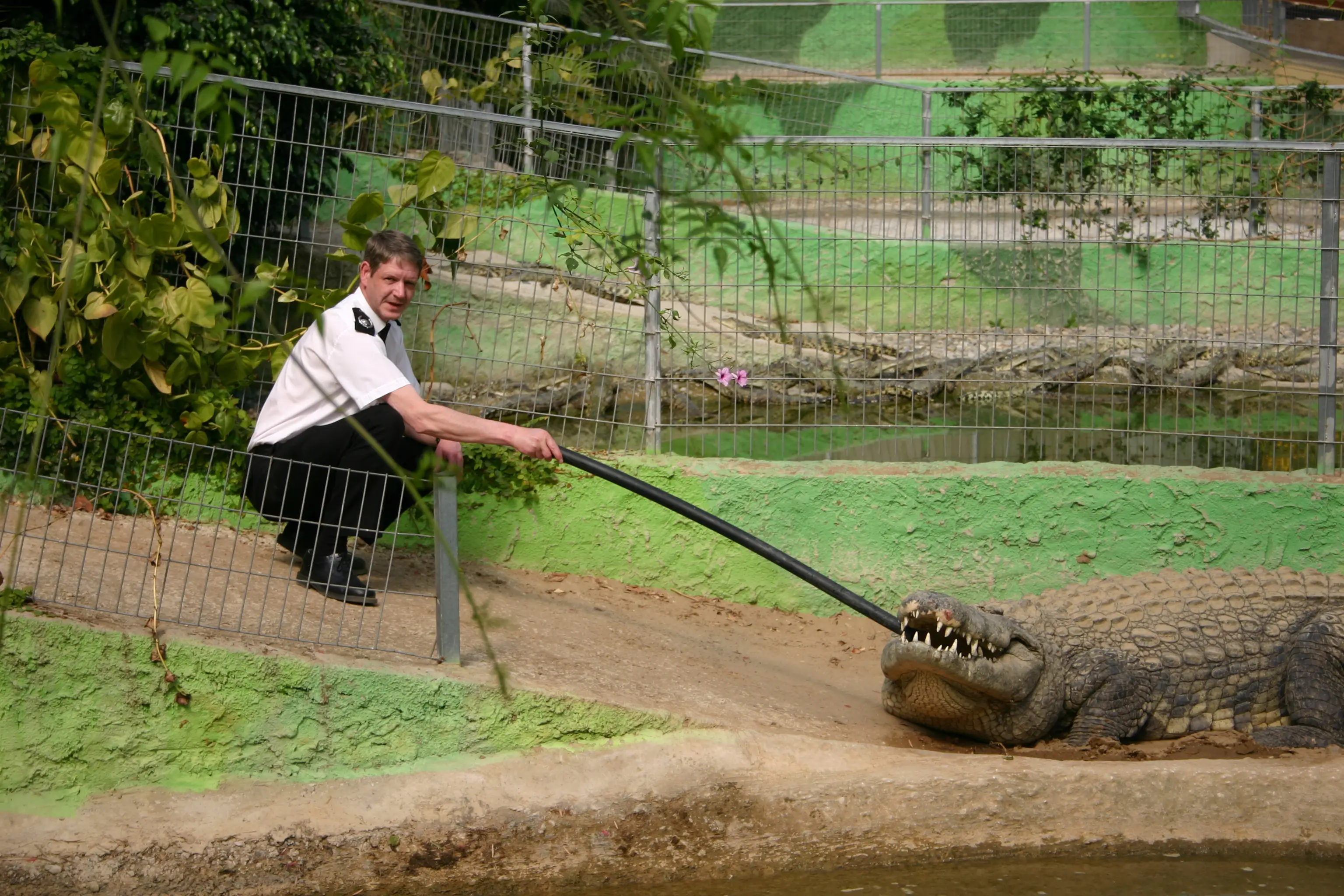
While dangerous animal keeper Jamie does believe that the DWA Act needs stricter measures to ensure welfare, he's more worried about the black market that still operates in the UK.
Jamie told LADbible: "The public are always going to be concerned about anyone keeping big cats or venomous snakes at home, whether they're doing it legally or not - but at least with those that have done it correctly, they have had some form of inspection.
"The guys I'd be really worried about are the ones you can't get the facts and figures for as they're doing it under the radar and, I'm afraid, they are out there."
The Ark Wildlife Park mentioned in this article is funded by public visits and has been hit hard by the coronavirus pandemic. Over 250 animals still need food, heating and medication. If you can help, visit their JustGiving page here.
Featured Image Credit: PATopics: Animals